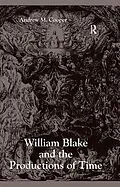Challenging the idea that a writer's work reflects his experiences in time and place, Andrew M. Cooper locates the action of William Blake's major illuminated books in the ahistorical present, an impersonal spirit realm beyond the three-dimensional self. Blake, Cooper shows, was a formalist who exploited eighteenth-century scientific and philosophical research on vision, sense, and mind for spiritual purposes. Through irony, dialogism, two-way syntax, and synesthesia, Blake extended and refined the prophetic method Milton forged in Paradise Lost to bring the performativity of traditional oral song and storytelling into print. Cooper argues that historicist attempts to place Blake's vision in perspective, as opposed to seeing it for oneself, involve a deeply self-contradictory denial of his performativity as a poet-artist. Rather, Blake's expansion of linear reading into a space of creative, self-conscious collaboration laid the basis for his lifelong critique of dualism in religion and science, and anticipated the non-Euclidean geometrics of twentieth-century Modernism.
Autorentext
Andrew M. Cooper recently retired as Associate Professor of English at the University of Texas at Austin, USA.
Inhalt
Contents: Introduction; Blake's post-Enlightened anamnesis; Seeing voices in Songs of Innocence; The skewed empiricism of Blake's early tractates; Common sense in Visions of the Daughters of Albion; Storytelling through the vortex of sense; Freedom from The Book of Urizen; The picture of the mind in 'the vision of the Last Judgment'; The physiology of vision in Milton; Conclusion: '1804'; Bibliography; Index.
